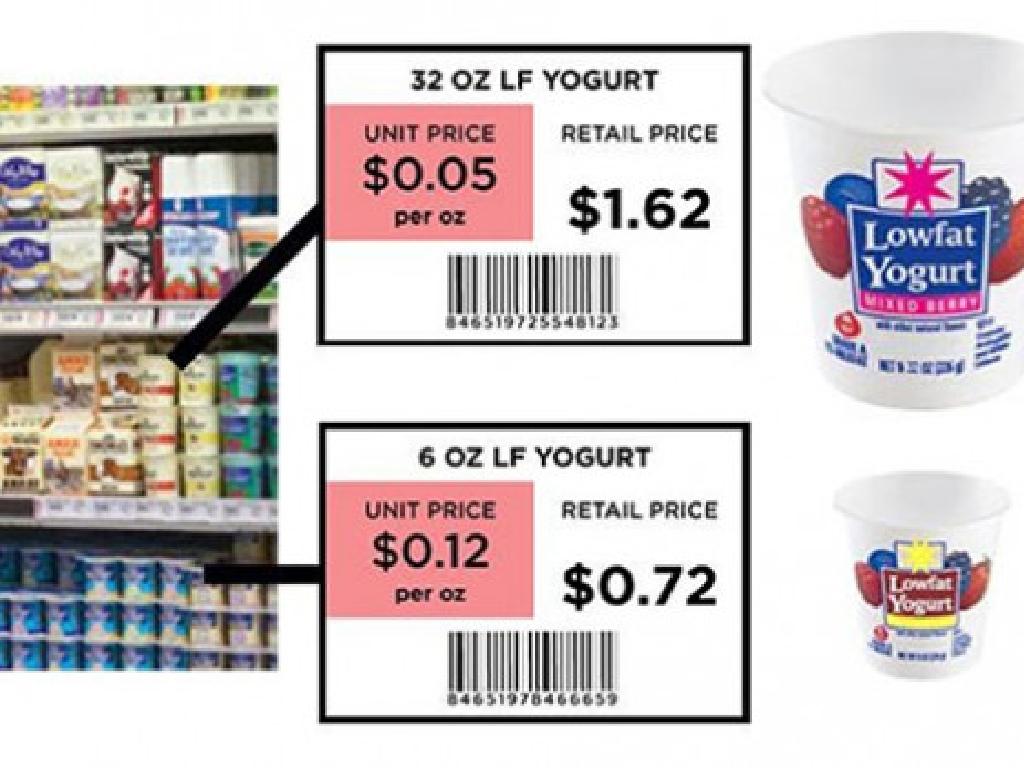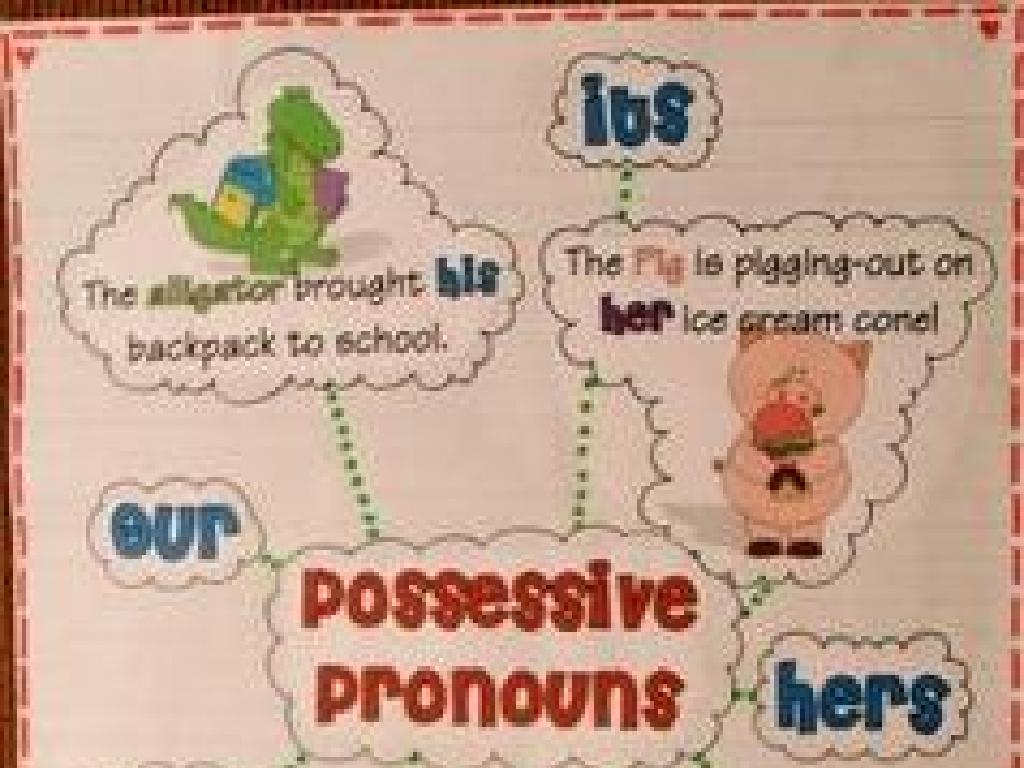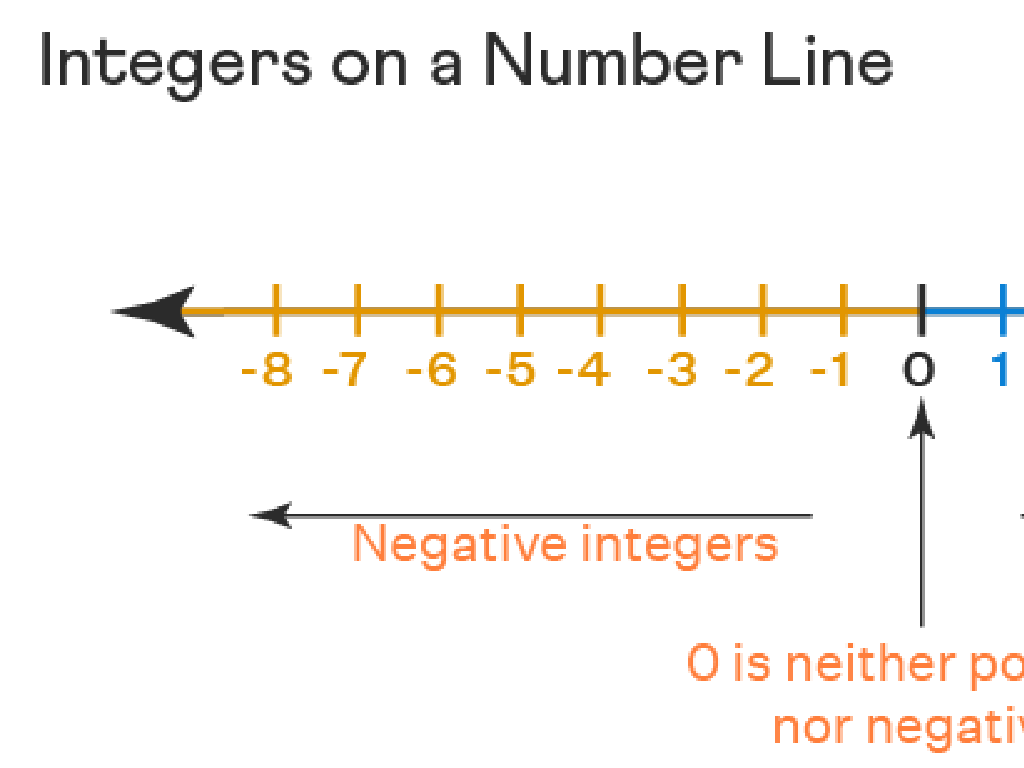Use The Prefixes Pre-, Re-, And Mis-
Subject: Language arts
Grade: Fourth grade
Topic: Prefixes And Suffixes
Please LOG IN to download the presentation. Access is available to registered users only.
View More Content
Exploring Prefixes: pre-, re-, mis-
– What are prefixes?
Prefixes are word parts added to the beginning of a word to change its meaning.
– Examples: pre-, re-, mis-
pre- (before), re- (again), mis- (wrongly)
– Prefixes alter word meanings
Adding a prefix modifies the base word: ‘heat’ to ‘reheat’, ‘place’ to ‘misplace’.
– Practice with prefixes
Find words with these prefixes in your favorite book.
|
This slide introduces the concept of prefixes to fourth-grade students, focusing on ‘pre-‘, ‘re-‘, and ‘mis-‘. Begin by explaining that prefixes are groups of letters placed before a word to alter its meaning. Provide examples for each prefix: ‘pre-‘ as in ‘preview’, ‘re-‘ as in ‘return’, and ‘mis-‘ as in ‘misunderstand’. Discuss how each prefix changes the meaning of the base word. For instance, ‘view’ becomes ‘preview’, indicating to view before. Encourage students to think of more examples and understand how the addition of a prefix can turn a familiar word into a new word with a related but distinct meaning. As an activity, students can look for words with these prefixes in books they enjoy or come up with their own examples. This exercise will help reinforce their understanding of prefixes and how they function in language.
Exploring the Prefix ‘pre-‘
– ‘pre-‘ means ‘before’
– Usage of ‘pre-‘ in words
– ‘pre-‘ is added to the start of words to indicate ‘before’
– Examples: ‘preview’, ‘predict’
– ‘preview’ means to see before, ‘predict’ means to say before
– Class Activity: Share a ‘pre-‘ word
– Think of your own ‘pre-‘ word and tell the class
|
This slide introduces the prefix ‘pre-‘ to the students, explaining that it means ‘before’. Show how ‘pre-‘ is used to change the meaning of a base word by giving examples such as ‘preview’ (to view before) and ‘predict’ (to say before something happens). For the activity, encourage students to think creatively and come up with their own examples of words that start with ‘pre-‘. They should consider what the base word means and how adding ‘pre-‘ changes its meaning. This activity will help reinforce their understanding of prefixes and how they alter word meanings. Possible activity variations could include drawing a picture of their ‘pre-‘ word in action, using their word in a sentence, or even creating a short story that includes several ‘pre-‘ words.
Exploring the Prefix ‘re-‘
– ‘re-‘ means ‘again’ or ‘back’
– Usage of ‘re-‘ in words
– ‘re-‘ is added to verbs to indicate repetition
– Examples: ‘rewrite’, ‘return’
– ‘rewrite’ means to write again, ‘return’ means to come back, ‘review’ means to examine again
– Class Activity: Craft a ‘re-‘ sentence
|
This slide introduces the prefix ‘re-‘ to students, explaining that it means ‘again’ or ‘back’ and is often added to verbs. Provide examples like ‘rewrite’, ‘return’, and ‘review’ to illustrate the concept. For the class activity, encourage students to think of a word that starts with ‘re-‘, use it in a sentence, and share with the class. This will help them understand how ‘re-‘ changes the meaning of the base word. Possible activities: 1) Rewrite a sentence from a story, 2) Return to a previous lesson and find ‘re-‘ words, 3) Review homework and identify mistakes, 4) Create a ‘re-‘ word wall with classmates.
Exploring the Prefix ‘mis-‘
– ‘mis-‘ means incorrect or wrong
– Usage of ‘mis-‘ in words
– Attach ‘mis-‘ to show error or mistake
– Examples: ‘misplace’, ‘misunderstand’
– ‘misplace’: to put in the wrong place, ‘misunderstand’: to get the wrong idea, ‘mislead’: to guide someone wrongly
– Activity: Matching ‘mis-‘ words
– Match words like ‘misjudge’ or ‘mismatch’ with definitions
|
The prefix ‘mis-‘ is used to indicate a wrong action or mistake. It’s important for students to recognize how adding ‘mis-‘ changes the meaning of the base word. Provide examples like ‘misplace’ (to put something in the wrong place), ‘misunderstand’ (to interpret something incorrectly), and ‘mislead’ (to guide someone in the wrong direction). For the activity, create a worksheet with ‘mis-‘ words on one side and a list of definitions on the other for students to draw lines connecting the word to its meaning. This will help reinforce their understanding of the prefix ‘mis-‘ and how it alters the meaning of words.
Prefixes in Action: Changing Word Meanings
– Prefixes alter word meanings
– Prefixes like ‘pre-‘, ‘re-‘, ‘mis-‘ modify the meaning of the root words they precede.
– Add ‘pre-‘, ‘re-‘, ‘mis-‘ to roots
– Examples: ‘pre’ (before) as in ‘preview’, ‘re’ (again) as in ‘redo’, ‘mis’ (wrongly) as in ‘misplace’.
– Group activity: Craft new words
For the activity, split into groups and combine prefixes with root words to create and define new words.
– Understanding prefix impact
|
This slide introduces the concept of prefixes and how they can completely change the meaning of root words. Begin by explaining that a prefix is a group of letters added to the beginning of a word. Provide examples for each prefix: ‘pre-‘ means before, ‘re-‘ means again, and ‘mis-‘ means wrongly. For the group activity, have students work together to form new words by adding prefixes to root words and then use those words in sentences. This will help them grasp how prefixes affect word meaning. Possible activities include creating a word list, drawing pictures of the words’ meanings, or writing short stories using the new words.
Let’s Practice with Prefixes!
– Play ‘Prefix Go Fish’
– Get cards with root words and prefixes
– Match prefixes with root words
– Use ‘pre-‘, ‘re-‘, ‘mis-‘ to form new words
– Create new words with partners
– Share your new words with the class
|
This interactive game is designed to help students understand and practice using prefixes. Each student will receive a set of cards with root words and prefixes. The goal is to find a partner and use the cards to create new words with the prefixes ‘pre-‘, ‘re-‘, and ‘mis-‘. For example, combining ‘re-‘ with ‘play’ to form ‘replay’. This activity encourages collaboration and reinforces the concept of prefixes in a fun, engaging way. As a teacher, facilitate the game by ensuring each student understands the rules and has a fair chance to participate. After the game, have a discussion about the new words created and how the meaning of the root word changes with different prefixes.
Class Activity: Prefix Hunt
– Scavenger Hunt for prefixed items
– Discuss the role of prefixes
– How ‘pre-‘, ‘re-‘, ‘mis-‘ give clues about item functions or usage
– Share discoveries with classmates
– Reflect on the activity
– Think about what you learned from this activity
|
This interactive activity is designed to help students understand the role of prefixes in altering the meaning of words. Students will search the classroom for items that have names beginning with the prefixes ‘pre-‘, ‘re-‘, and ‘mis-‘. After collecting the items, they will discuss as a class how these prefixes modify the meaning of the base words and help us understand the function or timing of the items. For example, ‘preview’ suggests seeing before others, ‘redo’ means to do again, and ‘misplace’ implies placing something incorrectly. Students will then share their findings with the class, fostering a collaborative learning environment. As a teacher, prepare to guide the discussion and provide feedback. Possible activities include finding a ‘preview’ button on a computer, a ‘redo’ option on a worksheet, or a ‘misplaced’ book in the library corner.
Wrapping Up: Prefix Power!
– Why prefixes matter
– Homework: Craft a story
– Include five words with the chosen prefixes in your creative story
– Use ‘pre-‘, ‘re-‘, ‘mis-‘ words
– Examples: ‘preview’, ‘redo’, ‘mismatch’
– Keep practicing prefixes!
|
As we conclude today’s lesson, remind students of the importance of prefixes in changing the meaning of base words. For homework, they should write a short story, incorporating at least five new words using the prefixes ‘pre-‘, ‘re-‘, and ‘mis-‘. This will help them understand and remember the meanings of these prefixes. Encourage creativity and the use of a dictionary or thesaurus. Remind them that practicing with these word parts will improve their vocabulary and reading comprehension skills. In the next class, we can have a few volunteers share their stories to reinforce learning and celebrate their efforts.






